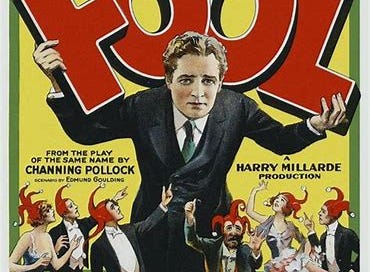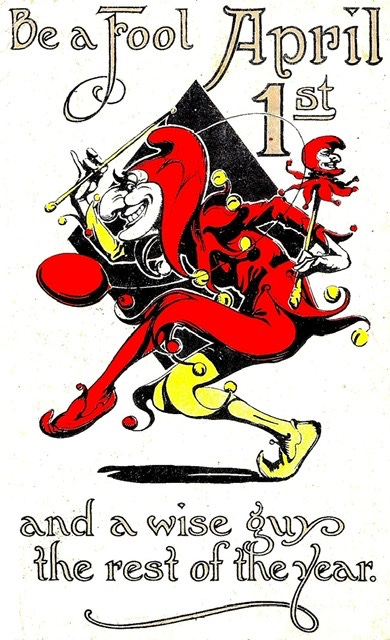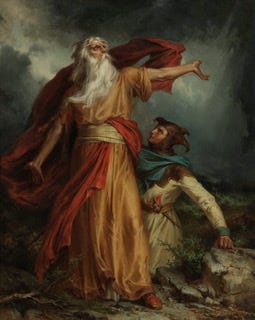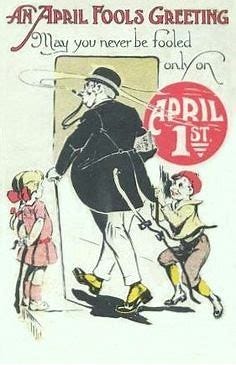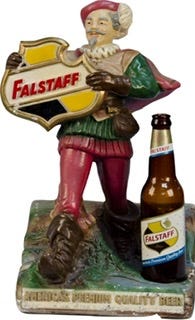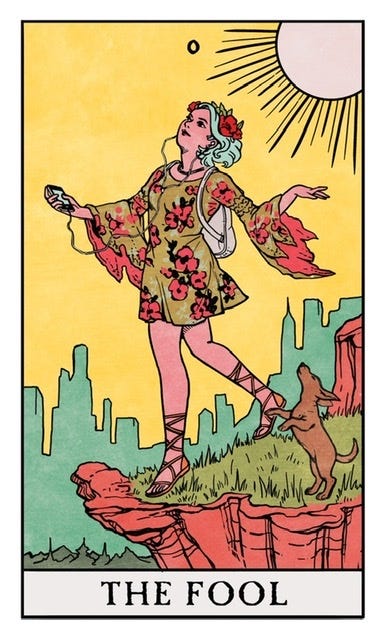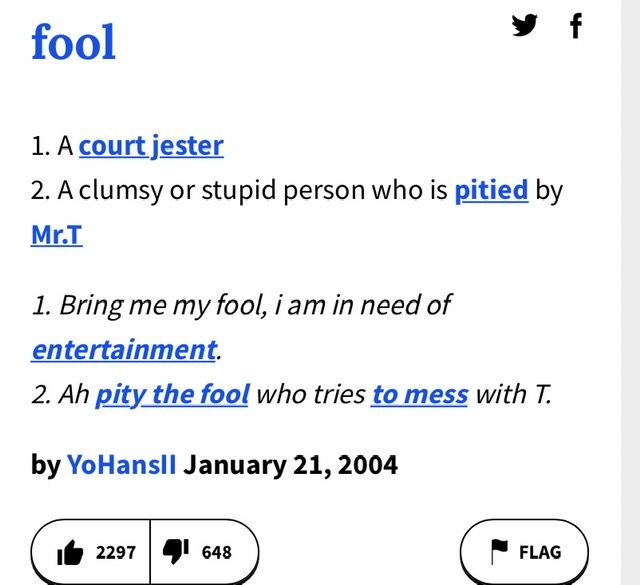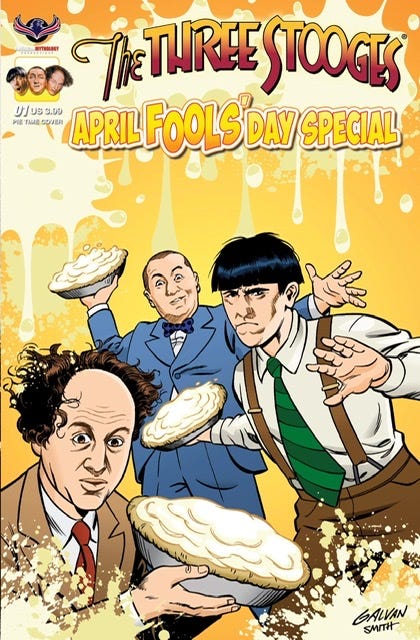Thirty Foolish Videos
Toronto Public Library Foolish Titles List
Shakespearean Fools
A Fool in Timon of Athens
Autolycus in The Winter's Tale – although arguments can also be made for the Shepherd's Son, also known as Yokel.
Citizen in Julius Caesar
Cloten in Cymbeline
Clown in Othello
Clown in Titus Andronicus
Costard in Love's Labours Lost – This clown is referred to as a "fool" in Act V, scene ii, but the word in this context simply refers to a silly man.
Dromio of Ephesus in The Comedy of Errors
Dromio of Syracuse in The Comedy of Errors
Feste in Twelfth Night – One of Shakespeare's most multi-faceted clowns.
Grumio in The Taming of the Shrew
Launce in Two Gentlemen of Verona – Launce is simple and pastoral. There is no mention of specific dress, or any indications of his or Speed's being a domestic fool or jester.
Launcelot Gobbo in The Merchant of Venice– Nowhere in the play does Gobbo do anything that qualifies him as an official fool or jester. Still, he is considered as such, perhaps because he is called a "patch" and a fool, and also because of his (and his father's) malapropisms ("This is the very defect of the matter sir," "Tears exhibit my tongue"). It is possible that these terms refer rather to the idea of the clown.
Lavache in All's Well That Ends Well – similar to Touchstone, he is a domestic fool.
Pompey in Measure for Measure – While this clown is the employee of a brothel, he can still be considered a domestic fool.[citation needed]
Puck in A Midsummer Night's Dream – Jester to the fairy king, Oberon, Puck comes closer to being the play's protagonist than any other Shakespearean fool.
Speed in Two Gentlemen of Verona – Speed is a clever and witty servant. There is no mention of specific dress, or any indications of his or Launce's being a domestic fool or jester.
The Fool in King Lear – The Royal Shakespeare Company writes of the Fool:
There is no contemporary parallel for the role of Fool in the court of kings. As Shakespeare conceives it, the Fool is a servant and subject to punishment ('Take heed, sirrah – the whip ' 1:4:104) and yet Lear's relationship with his fool is one of friendship and dependency. The Fool acts as a commentator on events and is one of the characters (Kent being the other) who is fearless in speaking the truth. The Fool provides wit in this bleak play and unlike some of Shakespeare's clowns who seem unfunny to us today because their topical jokes no longer make sense, the Fool in King Lear ridicules Lear's actions and situation in such a way that audiences understand the point of his jokes. His 'mental eye' is the most acute in the beginning of the play: he sees Lear's daughters for what they are and has the foresight to see that Lear's decision will prove disastrous.
The Porter in Macbeth
Touchstone in As You Like It – Touchstone is a domestic fool belonging to the duke's brother Frederick. He is a wise fool, although Rosalind and Celia jokingly say he is a natural fool.
Trinculo in The Tempest – Trinculo is considered to be a jester, but as he is only seen with Stephano and Caliban, he does not have the stage time to act out the qualifications of a traditional fool.
Yorick in Hamlet - The deceased "fellow of infinite jest" who inspires one of Prince Hamlet's famous soliloquies.
traditional fool.
Yorick in Hamlet - The deceased "fellow of infinite jest" who inspires one of Prince Hamlet's famous soliloquies.

